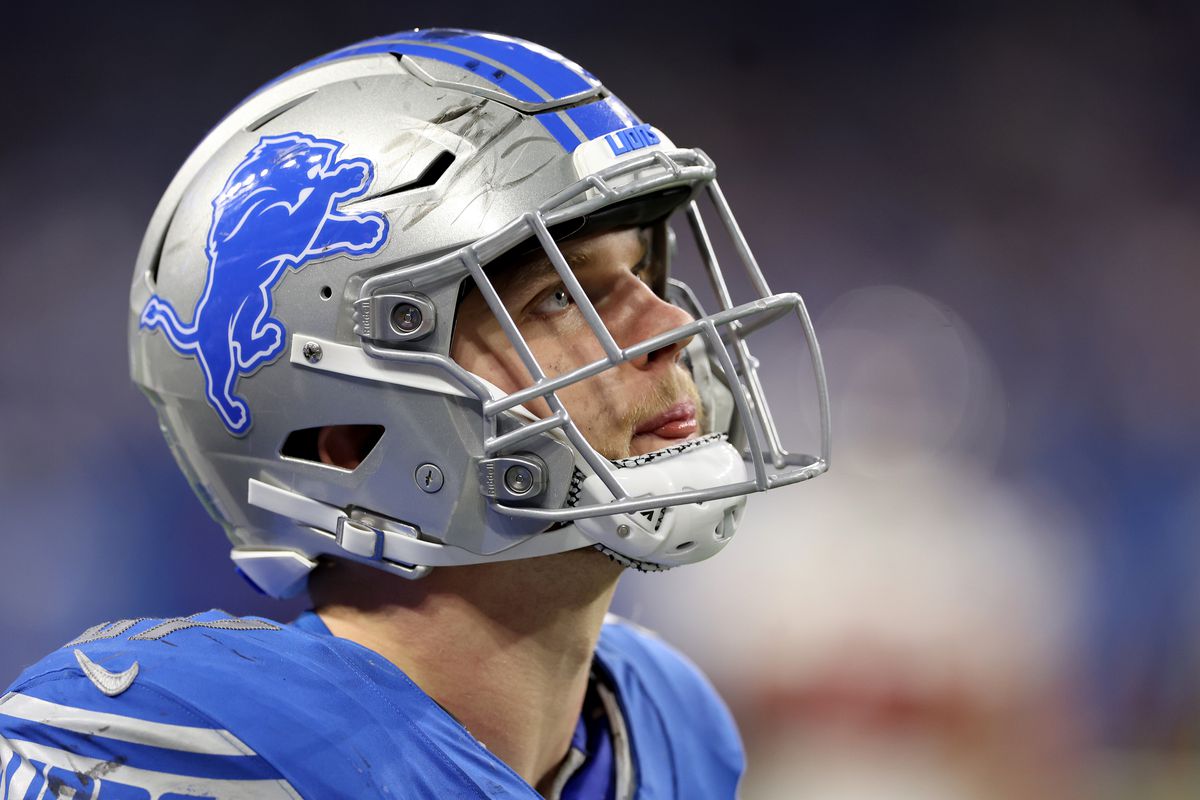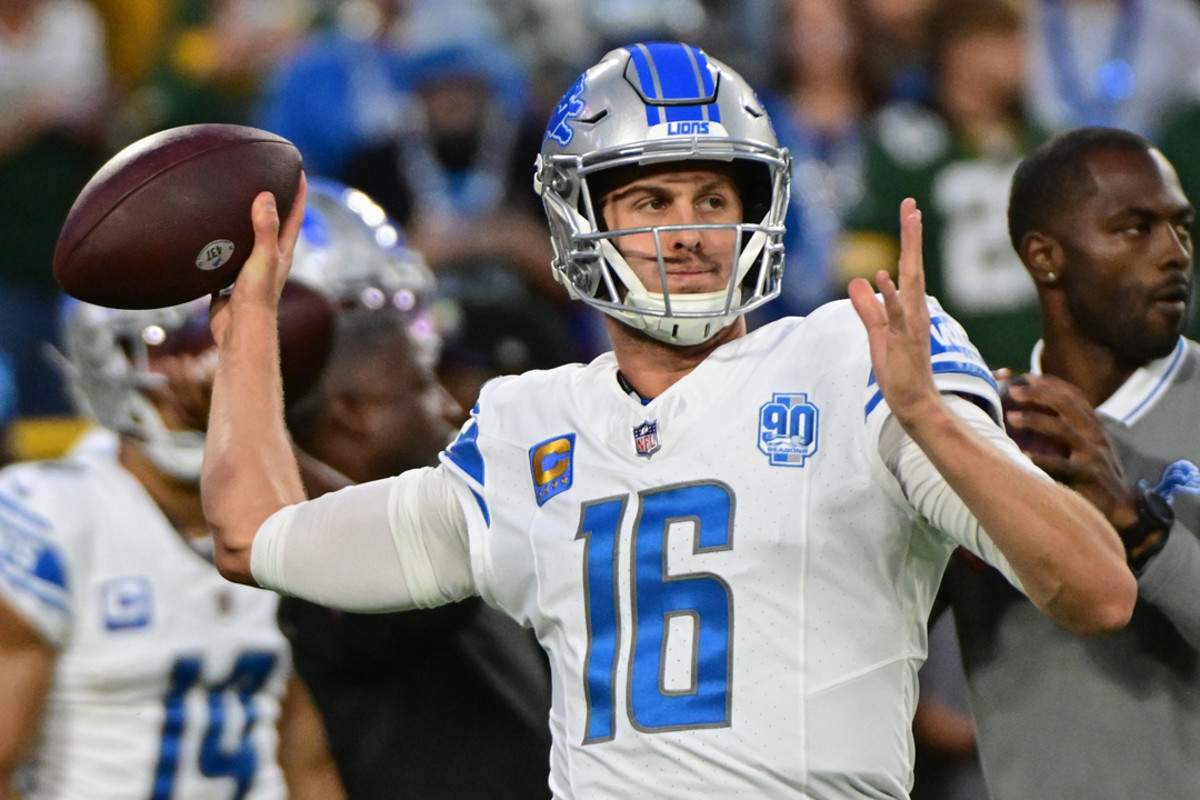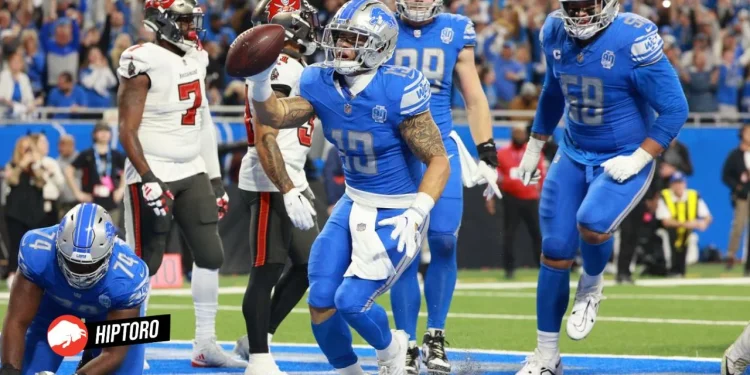The Detroit Lions, under the astute leadership of General Manager Brad Holmes and Head Coach Dan Campbell, have executed a masterstroke by acquiring high-end cornerback Carlton Davis from the Tampa Bay Buccaneers. This move has sent ripples through the league, sparking discussions on the strategic implications for both teams involved.

Detroit Lions’ Calculated Gamble
After a commendable run to the NFC Championship Game, the Detroit Lions identified a critical area for improvement—bolstering their secondary. The acquisition of Carlton Davis, a player of proven caliber and a second-round pick in the 2018 NFL Draft, directly addresses this need. Davis, known for his physicality and coverage skills, brings a significant upgrade to the Lions’ defensive backfield.
Entering the final year of his contract, Davis’s move to Detroit is a calculated gamble by the Lions’ front office. The trade details reveal the Lions sending a third-round pick to the Buccaneers in exchange for Davis, along with additional sixth-round picks in the upcoming drafts.
This maneuver not only strengthens their defense but also smartly navigates the salary cap, demonstrating Holmes and Campbell’s commitment to building a formidable team capable of championship contention.
Good time to remind everyone that Jamo is going to put the league on notice next year #Lions pic.twitter.com/so0naNh63P
— Lionologist (@AllDetroitLions) March 12, 2024
Analyzing the Tampa Bay Buccaneers’ Strategy
For the Tampa Bay Buccaneers, parting ways with Carlton Davis signifies a strategic pivot towards rejuvenating their squad with younger talent. While Davis’s departure may momentarily impact their defensive prowess, the acquisition of a top 100 pick in the deep 2024 draft class offers a promising avenue for replenishment.
The Buccaneers, under the guidance of their front office, have shown a keen sense of timing in capitalizing on Davis’s value at the apex of his contract situation.
By securing a third-round pick, the Buccaneers not only enrich their draft capital but also gain financial flexibility to navigate future signings and roster adjustments. This decision reflects a broader strategy of maintaining a balanced team capable of sustained competitiveness, underlined by their recent re-signings of key players such as Baker Mayfield and Mike Evans.
Grading the Trade Between Detroit Lions and Tampa Bay Buccaneers
From the perspective of the Detroit Lions, this trade is a clear victory. The addition of Carlton Davis for a mere third-round pick, complemented by the acquisition of extra draft picks, signifies a shrewd move by a team in dire need of secondary reinforcements. Davis’s arrival in Detroit not only elevates the team’s defensive capabilities but also sets a tone of ambition and determination within the organization.
The Lions’ grade for this trade is nothing short of an A-, reflecting the high potential for immediate and impactful contributions from Davis.
Conversely, the Tampa Bay Buccaneers receive a B+ for their strategic foresight and willingness to adapt. Although losing a player of Davis’s caliber is a tough pill to swallow, the Buccaneers have positioned themselves advantageously for the future. This trade underscores their commitment to a balanced approach, prioritizing long-term sustainability over short-term gains.

Final Thoughts
As the dust settles on this high-profile trade, the implications for both the Detroit Lions and Tampa Bay Buccaneers are profound. The Lions have unmistakably fortified their roster with a premier talent in Carlton Davis, signaling their readiness to ascend the ranks of the NFL.
Meanwhile, the Buccaneers’ strategic recalibration through the draft reflects a savvy understanding of team building and financial management.
This trade, emblematic of the NFL’s intricate dynamics, showcases the relentless pursuit of excellence that defines the league.

Source: Fansided









